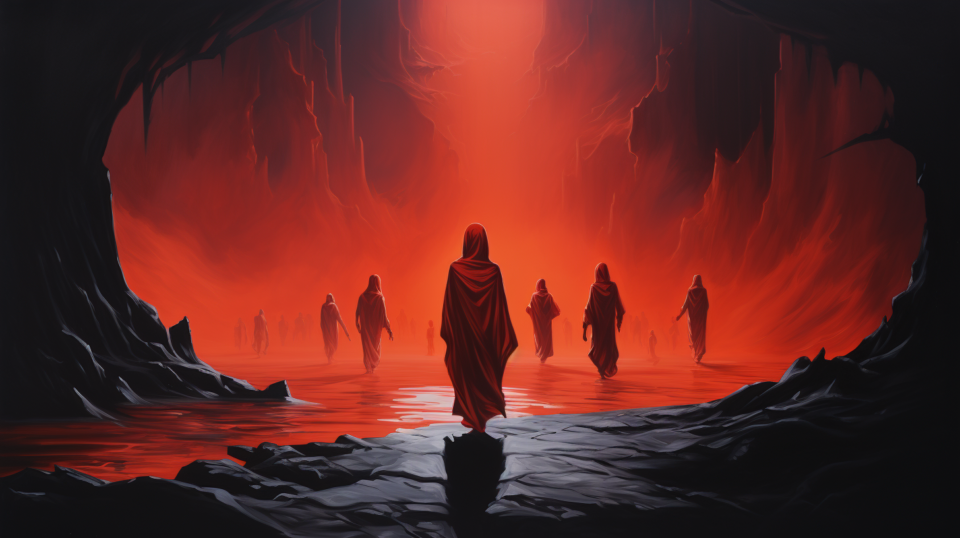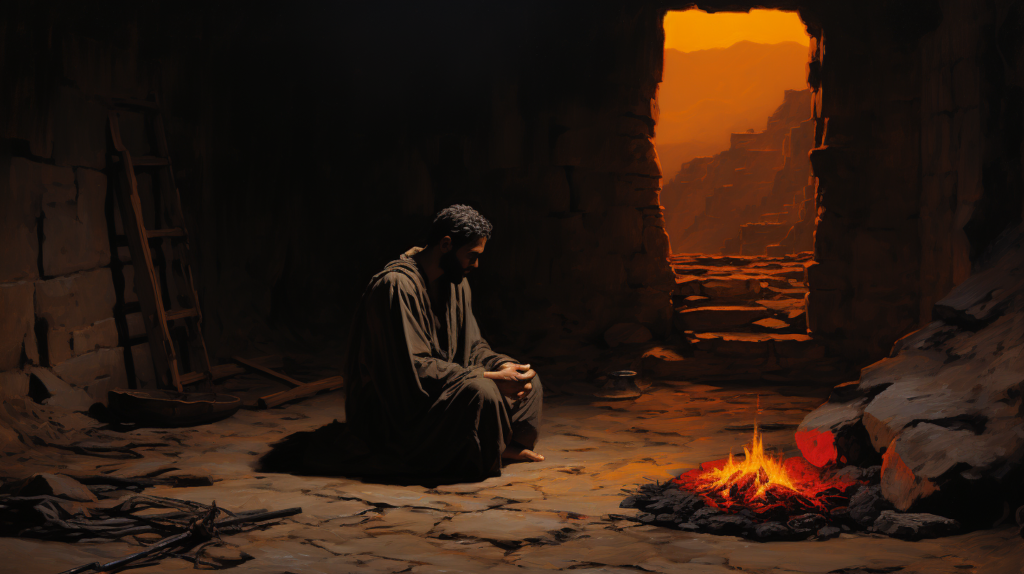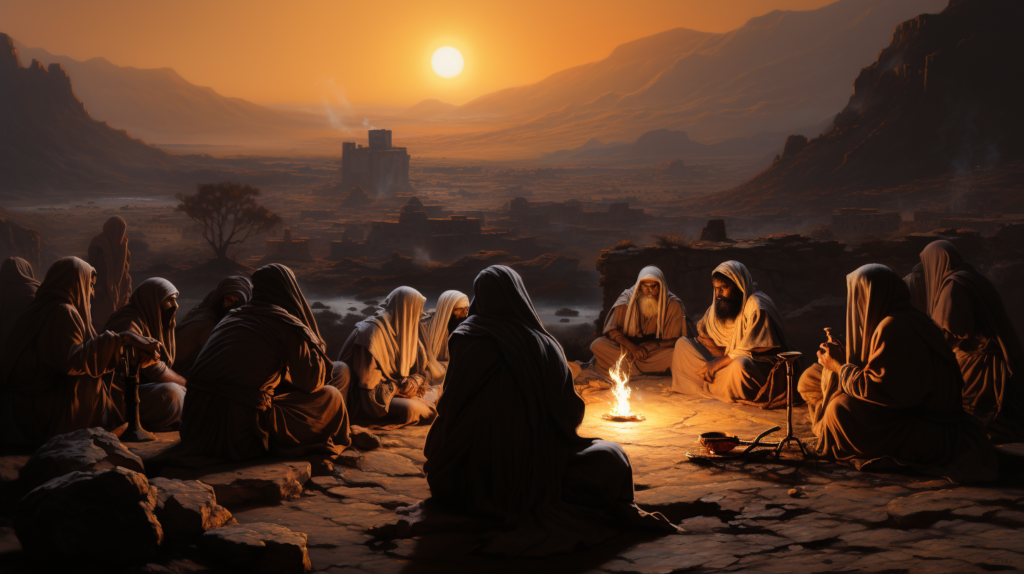The Journey of the Soul in Islam: A Voyage to the Hereafter
Death is an inevitability, a journey that every soul must embark upon. In Islam, the journey of the soul is a profound and spiritual expedition, guided by a wealth of references from the Quran and Hadith. Let’s explore the path that the soul takes when a Muslim departs from this world and heads towards the hereafter.
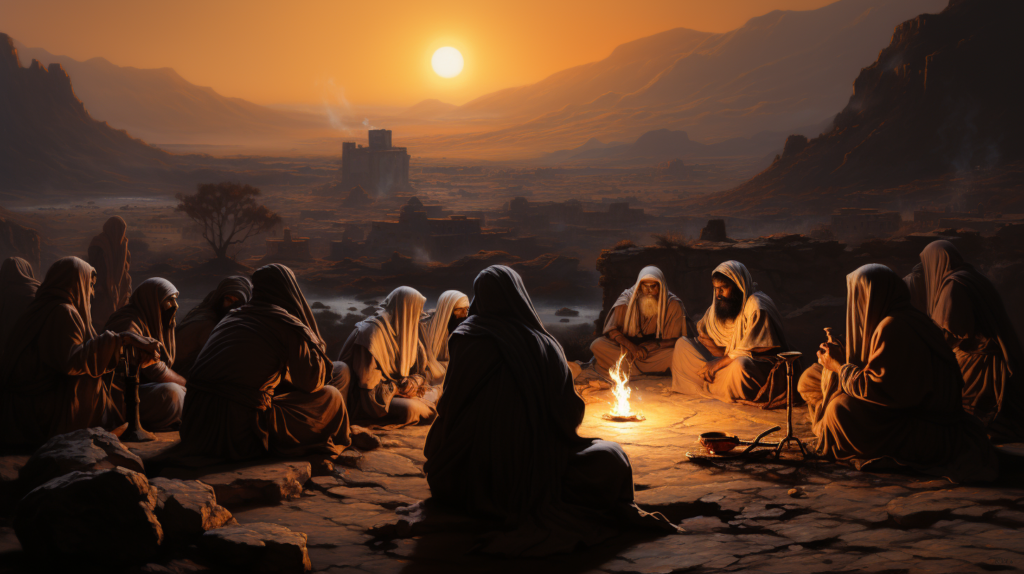
In the intricate tapestry of life, death is the profound and inescapable passage that every soul must traverse. It is in death that we embark on a journey, a journey that is both mysterious and spiritual, guided by the profound wisdom contained within the Quran and Hadith. This journey, deeply rooted in Islamic tradition, is the transition of the soul from the temporal world to the eternal abode, and it’s a voyage that beckons us to explore the innermost sanctums of our faith and existence.
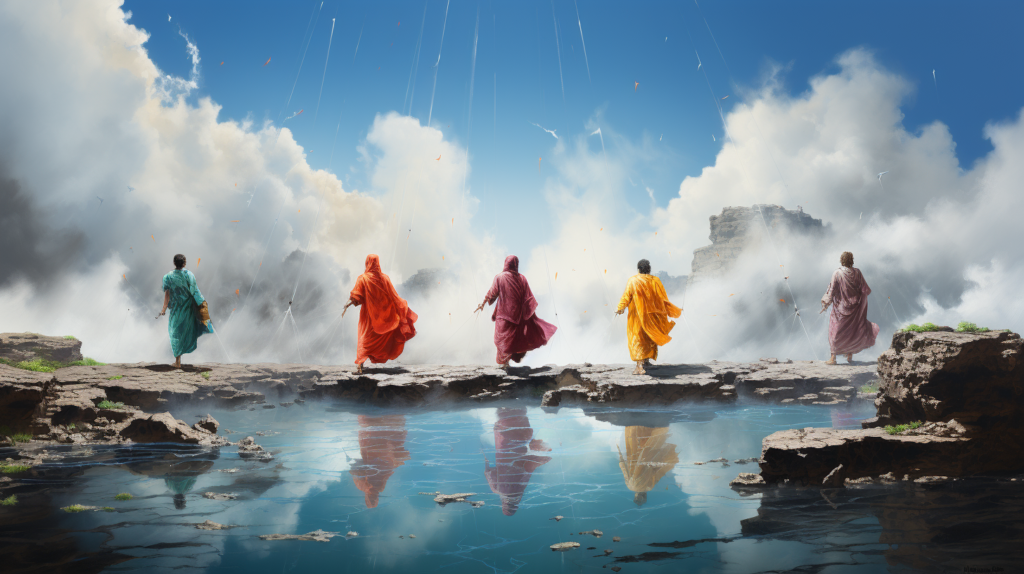
The Soul’s Departure from Earth:
As the final moments of a Muslim’s life approach, the soul prepares to depart from the material realm. It is a moment shrouded in solemnity and anticipation. The Quran, the divine scripture of Islam, paints a vivid picture of this transition in Surah Al-Qiyamah (75:26-29), “Does man think that We will not assemble his bones? Yes. [We are] Able [even] to proportion his fingertips.”

As the physical body succumbs to the inevitable, the soul begins its journey. The moment of death is described as a delicate transition from one realm to another. The Quran states in Surah Al-Waqi’ah (56:83-85): “And you will be three [kinds]: So when the great blast comes, on the Day when man will remember what he strove for.”
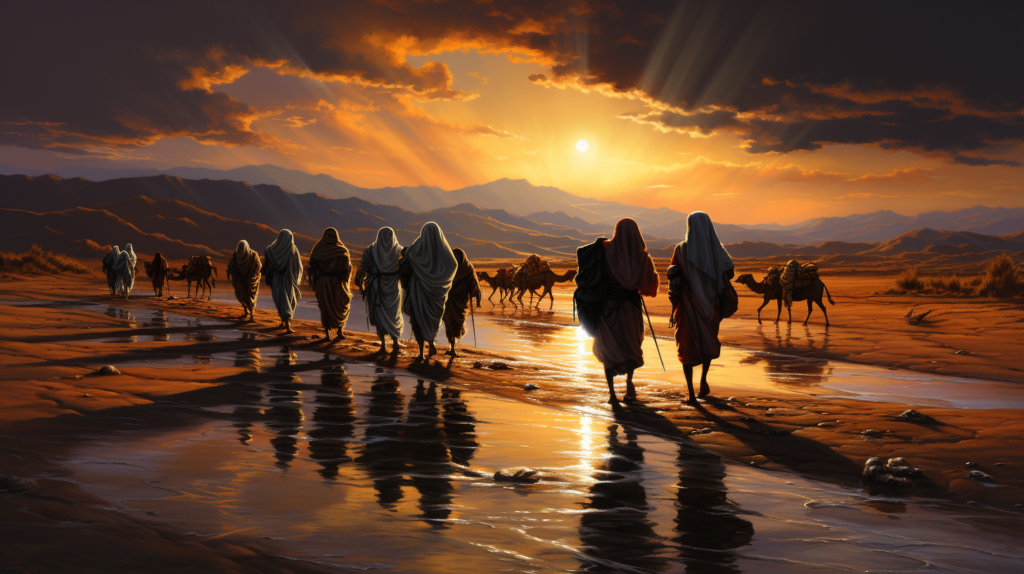
This moment is said to be accompanied by the Angel of Death, who respectfully takes the soul away from the earthly realm. The Prophet Muhammad (peace be upon him) spoke of this in numerous Hadiths, emphasizing the importance of being prepared for this passage.
The soul’s departure is a tender and delicate transition, where the Angel of Death arrives to gently guide it from the physical world to the ethereal realms. This moment, often accompanied by the recitation of Surah Yasin, marks the commencement of a journey that transcends the boundaries of time and space.
The Barzakh – The Interim Realm, A Waiting Period:
As the soul departs from the earthly realm, it enters an interim state known as “Barzakh.” It is a realm where the soul awaits judgment and prepares for the ultimate passage to the hereafter. The Quran provides glimpses of this unique phase in Surah Ghafir (40:11), “And Allah will judge with truth, while those they invoke besides Him judge not with anything.”
Upon leaving the physical realm, the soul enters a unique phase known as “Barzakh.” It’s a waiting period, a realm where the soul is judged and prepared for the hereafter. This is beautifully depicted in Surah Al-Mu’minun (23:99-100): “Until, when death comes to one of them, he says, ‘My Lord, send me back. That I might do righteousness in that which I left behind.’ No! It is only a word he is saying; and behind them is a barrier until the Day they are resurrected.”
The Barzakh is a realm of reflection, a place where the soul confronts its deeds, intentions, and the reality of its existence. In this state, the soul’s connection with the physical world is severed, and it becomes acutely aware of its spiritual journey.
The Final Gathering and Resurrection:
On the Day of Judgment, souls are resurrected, and the physical bodies are reassembled. This awe-inspiring moment is vividly described in the Quran in Surah Al-Qiyamah (75:3-4), “But man says, ‘When I have died, am I going to be brought forth alive?’ Does man not remember that We created him before, while he was nothing?”
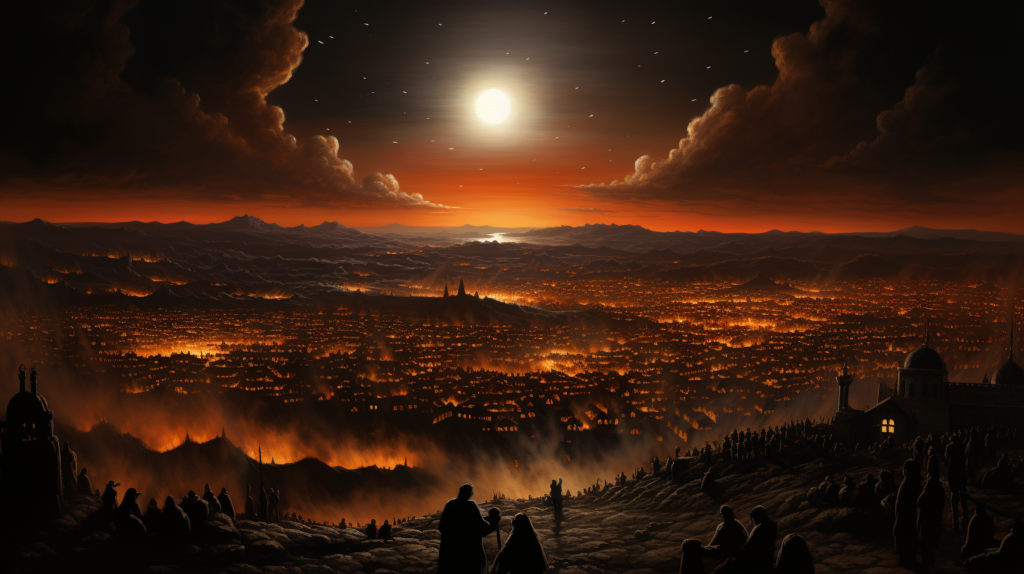
This day marks the culmination of every individual’s life choices, deeds, and intentions. As stated in Surah Al-Zumar (39:68), “And the Horn will be blown, and whoever is in the heavens and whoever is on the earth will fall dead except whom Allah wills.”
This day is marked by the ultimate assembly of souls, where every individual’s life choices, deeds, and intentions are laid bare. It is a day of profound reckoning and accountability, where the soul stands before the Creator to answer for its earthly existence.
The Balance of Deeds:
The Quran emphasizes the concept of deeds and their weight in the divine scales of justice. In Surah Al-Qari’ah (101:6-9), it is stated, “So as for he whose scales are heavy, then he will be in a pleasant life. But as for he whose scales are light, then his refuge will be an abyss.”
The deeds we accumulate during our earthly existence, both the righteous and the wrongful, are meticulously weighed, and their impact on our eternal destiny is determined. It is on this day that souls understand the profound implications of their actions.
Paradise or Hell: The Eternal Abodes:
Based on the deeds and intentions during their earthly life, souls are destined for one of two eternal abodes: Paradise (Jannah) or Hell (Jahannam). The Quran provides vivid descriptions of these abodes, offering a glimpse into the eternal reward for the righteous and the everlasting punishment for the wicked.
Paradise is depicted as a place of unimaginable beauty, where the soul is enveloped in eternal bliss. It is mentioned in Surah Ar-Rahman (55:72-76), “In them are fruits, and date-palms, pomegranates. Then which of the favors of your Lord will you deny?”
On the contrary, Hell is portrayed as a place of torment and suffering for those who deviated from the path of righteousness. The Quran warns in Surah Al-Hajj (22:19-22), “These are two adversaries who have disputed over their Lord, but those who disbelieved will have cut out for them garments of fire.”
These descriptions in the Quran serve as a reminder that the choices we make in this world can shape the destination of our souls in the hereafter. The eternal abode of each soul is a reflection of its earthly life, and this understanding is a profound motivator for believers to lead lives of righteousness, compassion, and devotion to Allah.
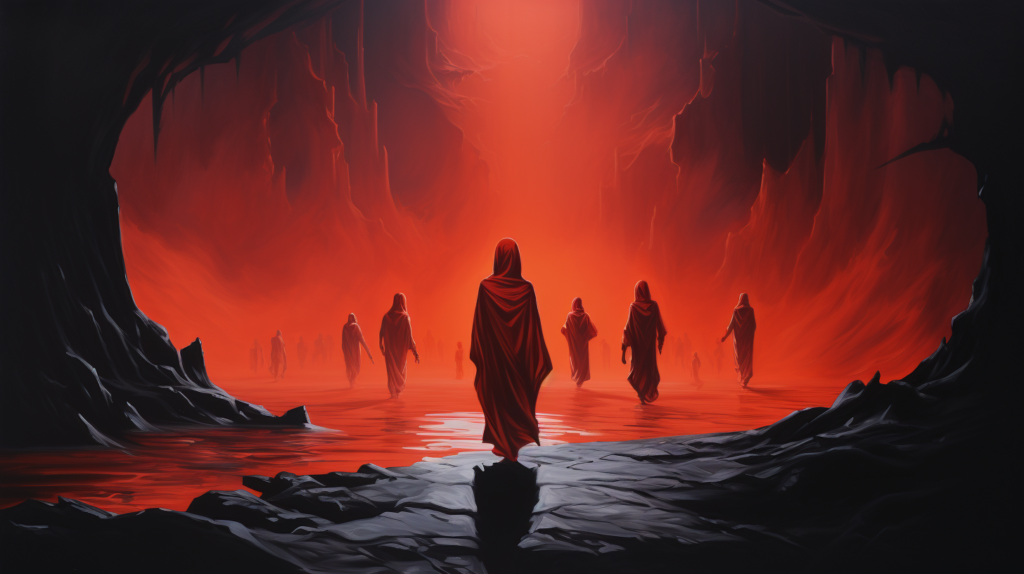
The journey of the soul in Islam is a sacred and profound odyssey, marked by transitions and awakenings, and fortified by a resolute faith in the Creator.
The journey of the soul when a Muslim dies is a profound spiritual odyssey. Drawing from Islamic references in the Quran and Hadith, we understand that death is merely a transition to another realm. As believers, it is our duty to prepare ourselves for this inevitable journey by leading a life of righteousness, compassion, and devotion to Allah.
The references from the Quran and Hadith provide us with insight into the significance of this journey and the consequences of our actions in the hereafter. It is a reminder that the choices we make in this world can shape the destination of our souls in the hereafter. Embracing this understanding, we can find solace and purpose in our lives, striving to lead a life that guides our souls toward the eternal abode of Paradise.
References:
- The Holy Quran, Various Surahs
- Sahih al-Bukhari and Sahih Muslim (Hadith collections)
- “The Hereafter” by Imam An-Nawawi (Kitab al-Akhirah)

